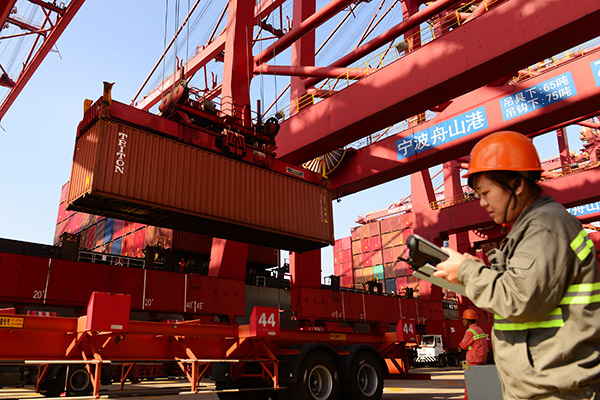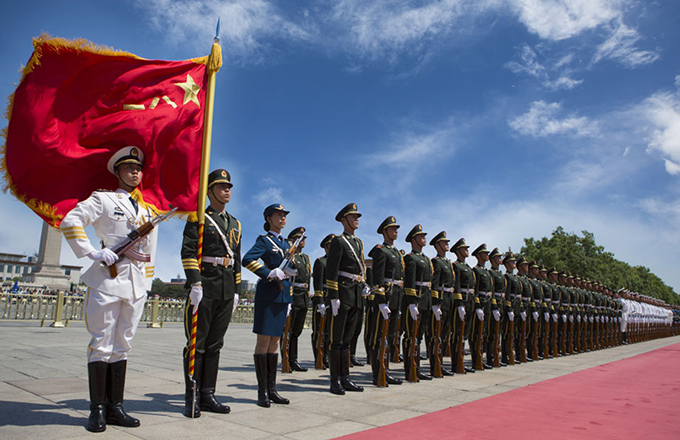China economy in steady growth and reasons to be optimist
 |
|
A worker monitors container operation at Zhoushan port in Ningbo, Zhejiang province. [Photo/China Daily] |
China's economy grew in the first half of 2017 at an annual pace of 6.9%, which indicates a steady growth in line with the government forecast of 6.5% to 7% of growth.
The composition of the increase, where the major contributor and the one growing the fastest is the tertiary sector, show the economy has continued to consolidate a shift from manufacturing to services in the new normal.
While the figures look positive, China's economy still has issues to solve to continue with its steady growth. For example, the existence of companies with an overcapacity in the manufacturing sector are a burden to the country with their large accumulated debt and it is something that must be dealt with. The existence of speculation in the property sector, which had an increase in prices, creating the conditions of a bubble, is another example. However, in these two fronts the government is taking steps; especially, with overcapacity in the steel and coal industries, which must be deal with promptly as they represent a burden on the state finance and also contribute to environmental pollution.
Given the strong rate of urbanization in China, the increasing size of its middle class, the advent of new information and communication technologies, and the need to continue dealing with the nocive effects of climate change, the drivers of economic growth are those in the service sector and in industries dealing with those themes. For example, China already is a country where online shopping is popular with companies like Alibaba and Tencent with its mobile payment. China is indeed an innovator in this field with apps such as Wechat, which allow most people in the country buy goods and pay for services, and Taobao for delivering anything to shoppers.
The growth of internal tourism or the more than one hundred million Chinese traveling abroad every year also shows the strength of the purchasing power on the Chinese middle class. For example, as only a fraction of the figure are foreigners visiting China, something must be done to encourage more visits, such as extending the 144 hour visa free entry for foreigners in cities like Shanghai. China is also a world leader in the clean technology industries, producing most of world solar panels, wind turbines and electric cars. China should continue making efforts to create new clean technologies and, in this way, contribute to the whole world.
It seems China will also achieve the goal of reaching its planned economic growth rate in the second half of the year. Even the IMF agreed in his last report, released in the middle of July. It projected China's economy will growth at 6.7% in 2017. As stated in the report, the world economy does not depend on the growth of the United Sates economy as it has done previously, but in new growth centers, like China. This is why the growth of China's economy is important for the world's economy as it contributes one third of it from the past decade. We also have to consider more than 130 countries has China as its main trade partner, so it's demand for mineral and raw materials is important, as well as its demand for foods and processed goods. In 2016, China also became the second biggest foreign direct investor in the world, becoming a direct contributor to the development of many countries by setting mines, industries and investing in the building of infrastructure.
The reforms Chinese government introduced in 2013 seems to also be paying off, but, as mentioned, should continue. China should continue opening the economy to foreign companies and goods, as this will allow Chinese companies to be more competitive and benefit consumers by allowing them to choose from more.
Carlos Aquino Rodriguez is professor at San Marcos National University in Peru and director of its Institute of Economics Research. He is a specialist in the research of the economic development of East Asia.
























